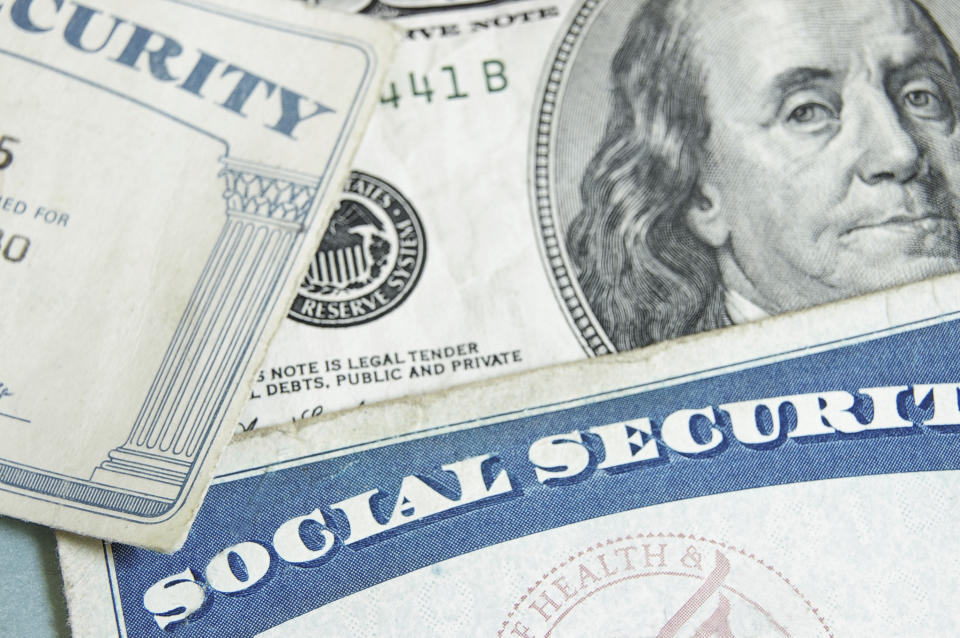67% of Workers Get This Basic Social Security Fact Wrong
Social Security is a lifesaver for millions of retirees who depend on it to make ends meet. Nearly half of married beneficiaries rely on their monthly checks for at least 50% of their income, according to the Social Security Administration, and one in five depend on their benefits for more than 90% of their income in retirement.
If your savings are falling short, you may have no choice but to rely on Social Security to cover the majority of your retirement expenses. That makes it even more important to fully understand how the program works so you can maximize your benefits.

Image source: Getty Images
One of the most important factors to understand when it comes to Social Security benefits is your full retirement age (FRA), or the age at which you're eligible to receive the full benefit amount you're theoretically entitled to. This number is either age 66, 67, or somewhere in between depending on the year you were born, and claiming before or after your FRA affects how much you'll receive in benefits each month.
However, not everyone can correctly identify their FRA. Sixty-seven percent of workers don't know what age they become eligible to receive their full benefit amount, according to a survey from the Nationwide Retirement Institute. And of those who can't correctly identify their FRA, 57% believe it's sooner than it actually is, the survey found.
Not understanding what your FRA is and how it works can lead to unknowingly shortchanging yourself. But by claiming at the right age, you could boost your monthly income for the rest of your life.
How your FRA affects your benefits
You're allowed to start claiming Social Security benefits as early as age 62, but for every month you claim before your FRA, your benefits will be reduced. Wait to claim until after your FRA, though, and you'll receive additional money each month on top of your full amount to make up for the time you weren't receiving benefits.
These adjustments can be significant, too. Say your FRA is 67, and if you claim at that age, you'd be receiving $1,500 per month in benefits. Claim early at 62, and your benefits will be reduced by 30% -- leaving you with monthly checks worth just $1,050. If you were to wait until age 70 to claim, you'd receive a 24% boost on top of your full amount, bringing your monthly total to $1,860.
While technically you can undo your decision to claim benefits within 12 months of filing for them, once that window has closed, the amount you'll receive each month is final (save for yearly cost-of-living adjustments). In other words, if you claim at 62 and your benefits are reduced, you'll continue receiving those smaller checks for life. Similarly, though, if you wait until age 70 to claim, you'll receive bigger checks for the rest of your life.
Waiting as long as possible to claim benefits may sound like the best option, but it's not always the ideal solution. The right age to claim depends on various factors, and it will depend on your unique financial situation.
Choosing the best age to claim Social Security
The system is designed so that, in theory, you should receive the same amount over a lifetime no matter what age you start claiming benefits. If you claim early, you'll receive less money per check, but more checks over a lifetime. Delay benefits, and you'll receive fewer (but bigger) checks. However, the system doesn't work perfectly, and sometimes there's an advantage to claiming earlier or later.
The biggest motivation to delay benefits is if you're short on savings and expect to spend several decades in retirement. A third of today's 65-year-olds can expect to live past age 90, according to the Social Security Administration, and one in seven will make it past age 95. If your personal savings will have run dry by then, those bigger Social Security checks can go a long way.
On the other side of the coin, if you have reason to believe you may not spend decades in retirement, it may be better to claim sooner rather than later to make the most of your money while you can. You may also choose to claim early if you've been forced into an early retirement and need help paying the bills.
There's no "right" age to claim Social Security, but understanding how the age at which you claim affects your benefits is crucial if you want to make the best decision. Especially if your benefits are going to make up a good portion of your retirement income, you'll want to make sure you're making the most of them.
More From The Motley Fool
The Motley Fool has a disclosure policy.

 Yahoo Finance
Yahoo Finance 